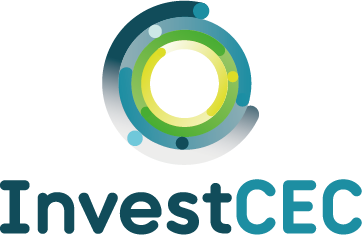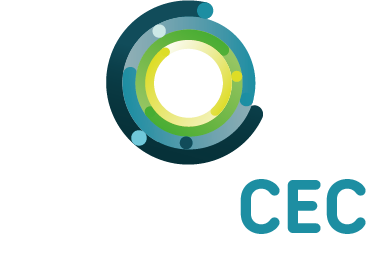At the InvestCEC final event, Maya Poncelet, Head of Partnerships at Una Terra, joined the panel “Driving the Circular Transition through Public Procurement and Strategic Partnerships”, representing the investor perspective on how to accelerate the circular economy through collaborations between the private and the public sectors.
Investing in Europe sustainable future
Based in Zurich, Una Terra is an early growth fund investing in European solutions that enable the circular economy and reduce CO2 emissions and plastic waste at scale. The fund backs late-stage startups with proven market traction, providing through growth capital, hands-on operational support, and an extensive partnership network.
Having recently closed its first €50 million, Una Terra continues to fundraise from family offices, foundations, institutions, and sovereign funds. They have established a partnership with Venionaire Capital to support the InvestCEC project, demonstrating how high-integrity public-private partnership can accelerate the Europe’s circular transition.
Una Terra sees circularity not as a niche sustainability trend but as the foundation for a resilient, regenerative economy. Investing in circular models strengthens resource security, industrial competitiveness, and community resilience.
“If we want to scale circularity,” says Maya Poncelet “we have to move from talking about impact to financing it — and that requires trust, creativity, and real collaboration between the public and private sectors.”
Overcoming the investment bottleneck
Despite growing awareness, regulatory support, and a multi-trillion euro market opportunity, there remains a significant funding gap. “The key bottleneck remains clear: capital is not yet flowing efficiently to where it’s needed most”, explains Poncelet.
“The circular economy is still perceived as a niche or slow-to-scale sector, driven largely by recent regulatory shifts. But like any emerging market, success depends on identifying which solutions can truly scale — and ensuring the right incentives and partnerships are in place.”
From the investor perspective, she highlights three priorities actions:
- Focus on commercial viable solutions, by investing in solutions that scale within existing infrastructure, and demonstrate strong financial performance.
- Build strategic partnerships to strengthen the market together. We need a new culture of collaboration and trust between the public and private sectors. To do this, we must find our allies and build bridges across silos.
- Introduce more enabling policy incentives, not only restrictive ones, that reward material independence and verified impact. For example, we need tax credits for repaired, reused, and recycled materials. In addition, stronger sustainability reporting will make these circular processes measurable. This is key for us as investors as we can’t finance what we can’t measure.
From compliance to opportunity
For Maya Poncelet, the next stage of circular investment will be also defined by a mindset shift – from compliance-driven to opportunity-driven circularity.
“Businesses and investors who think strategically and long-term understand that circular models are a source of lasting advantage,” she says. “We may ultimately need to evolve beyond growth-based models, but today we can harness the power of traditional finance to accelerate circular solutions at scale, especially when combined with ambitious public-sector procurement”Circular businesses, she adds, have incredible growth potential and are positioned to outperform their linear peers for several reasons: they are more resilient to supply chain disruptions and resource price volatility; they achieve cost efficiencies as materials circulate and marginal costs decline; their service-oriented models foster long-term customer relationships and market stability.
Partnering for Scalable Impact
Una Terra joined the InvestCEC project through collaboration with Venionaire Capital, an investment firm, specialised in Venture Capital and Private Equity and core partner together with Stadtwerke Klagenfurt. Apart from Una Terra, Venionaire forged partnerships with Universe Partners, a resilience tech fund, to help bridge the gap between EU policy goals and market realities. These partnerships are crucial for InvestCEC, as public and private capital must work in tandem to make circular projects bankable.
Looking ahead, Una Terra will continue collaborating with Venionaire Capital on the origination, evaluation, and potential financing of high-impact circular-economy opportunities across Europe. “We’re at the beginning of a real industrial shift,” says Maya Poncelet. “Stronger supply chains and better everyday products will increasingly come from circular businesses – and Europe has a chance to lead that change.”
In particular, Una Terra will review and assess the curated pipeline that Venionaire provides in its role as Deal Origination Partner and Strategic Venture Partner. Drawing on several years of venture-capital experience and strong network with utilities, cities, entrepreneurs, and co-investors, Venionaire will identify projects aligned with public utility needs and ready for structured due diligence for Una Terra’s independent evaluation.
Where appropriate, the parties will coordinate with municipal and utility stakeholders to develop blended-finance and public–private partnership models that align incentives, share risk, and accelerate replication from pilot to procurement and city-to-city scale.
This interview is based on responses provided by Maya Poncelet (Una Terra) and Paul Stern (Venionaire Capital). It was curated by Giorgio Alessandro (Greenovate! Europe) for the InvestCEC project. For more information, please contact: g.alessandro@greenovate-europe.eu

